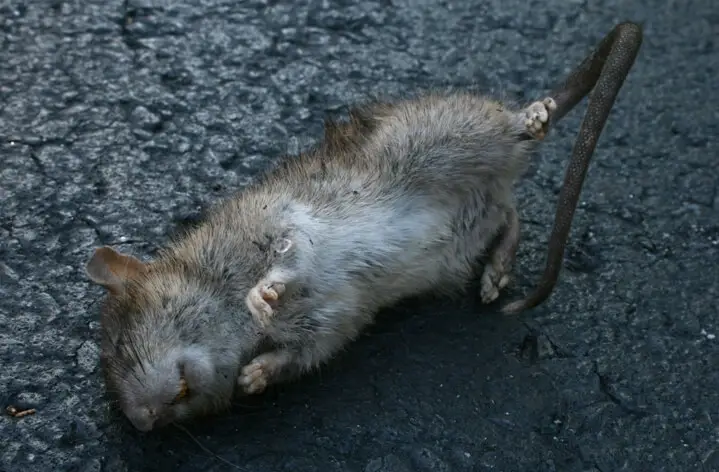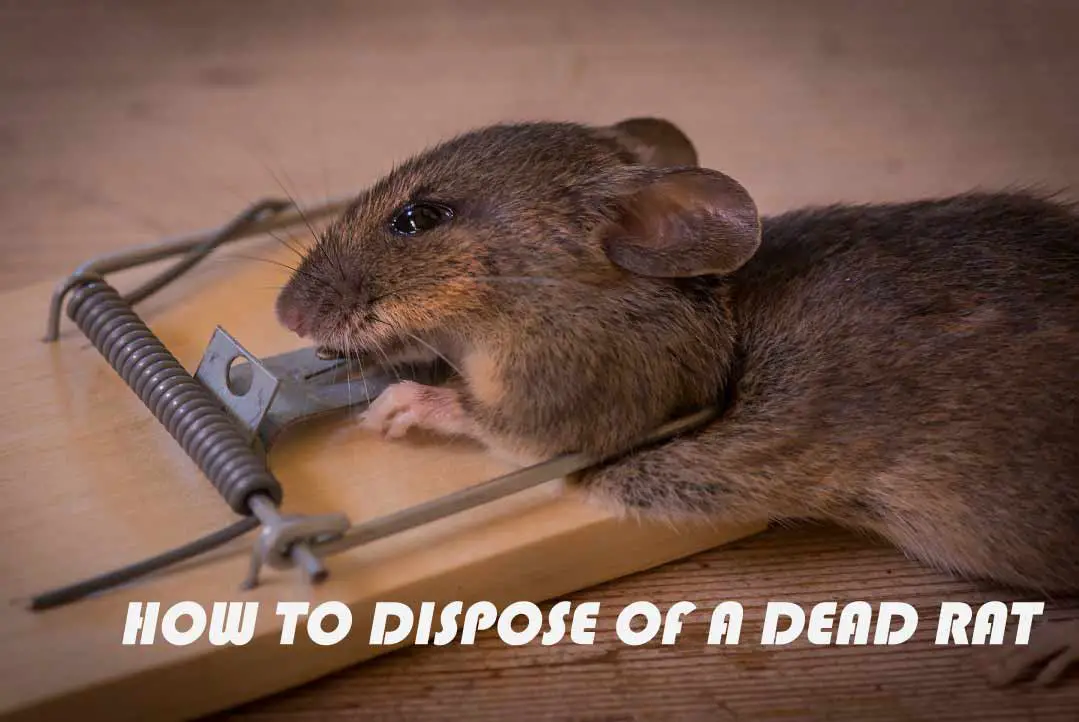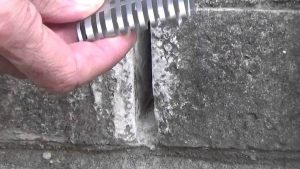Spotting a rat scurrying across your kitchen floor is frightening. To think that it could find its way into the rest of your home is an equally scary thought. What’s worse, if you have little kids and pets, this could be nightmarish for you. Few days fast forward, and the rats are dead, but the problem is far from over, because you’ll need to deal with the nasty odor of dead rats!
Apart from the potential danger, it can cause you and your family, having a dead rat in the home could also cause health issues as they are usually carriers of disease. If you killed a swarm of them, obviously you’ll find dead mice all over your home. That’s when you need to take absolute care to dispose of all of them perfectly.
Disposing of a dead rat
If you find some nauseous smell coming from a part of your home, it could well be a dead rodent. Even if you are able to track down the dead animal smell, what should you do next to get rid of it? Here are some steps to follow:

Don’t let your pets near the dead rat
Though a dead rodent may catch the fancy of your pets, it’s better to keep them away from it. This is because they might want to play with it or even eat it. But this is bad because rodents are carriers of disease and germs which your pets can easily pick up.
Wear safety gear
If you’ve been using rat traps, it’s now time to wear safety gear such as rubber gloves. Now, lift the rat trap and remove the dead rat. If you’re too scared to pick up a dead mouse, put some newspaper below the trap, fold it up and throw it into the bin.
Rat decomposition
If you want to know how long it takes for a rat to decompose, the answer is three weeks. Of course, much depends on the size of the rat, temperature, humidity levels, and other factors. Even after the corpse has decomposed, the stench of the decomposed rat may linger in the air for some more time. That’s when it becomes important to call in an exterminator to break the wall down and take out the body of the rat.
The process of rat decomposition is such that it involves the production of chemicals that we can smell at extremely low concentrations. By keeping the dead animal in your home without attempting to remove it means voluntarily breathing in dead animal fumes, which is detrimental to your health. If you want the smell to go immediately, remove the rat carcass.
Disposing of a dead rat in your garden
There are many ways of dead rodent removal from your garden, such as:
If you live in the UK, you’re legally allowed to bury animals in your garden. So, dig a grave two feet deep and ensure there’s a rocky layer over the dead rat so that scavengers don’t unearth it. Go really low to place it in the soil in your garden and let it be part of nature again.
Your council authority or vet could offer help to incinerate the corpse, so don’t try to burn the dead body yourself.
Add it to a landfill
Wrap it up and throw it in a bin. In no time, flies will lay eggs on it and it will be infested with tiny maggots. Hence, it pays to wrap it up as best as you can in a plastic bag and then drop it in a bin to prevent maggots or flies escaping from the bag.
Disposing of a dead rat in a wall
If you get the stench of something rotten in one of your walls at home, and sense it’s a rat, it can be challenging to enter the cavity. In most cases, you won’t be able to enter the cavity directly to remove the dead rat.
Before you consider breaking open the wall, you should check to see if the spot you’re considering is indeed where the carcass is. However, if you can’t do this, you might have to carve a hole in the wall’s drywall and remove the dead rat.
How to get rid of a dead rat in a wall?
If you’ve moved into an old house, and experiencing stench, chances are there’s a rat died in the wall. The right way to dispose of the body is to put it into a container or into a garbage sack. If you choose to go with the latter, use two sacks so that the stench of the rat doesn’t reach other pests.
Then, place it in a garbage bin or incinerate it. You might also choose to bury the rat, though the problem here is that if the bag isn’t sealed, it will attract pest animals. And with garbage sacks not being biodegradable, this method comes with its own problems.
Getting rid of dead rat odor
What does a dead rat smell like? Well, absolutely putrid, so to speak. However, it can be removed in just a few steps. They are:
- Locate the spots from where you get the smell.
- Once you find the spot, try removing the dead rat in the attic. If you fail, call in experts.
- Next, clean the dead rat area using chemicals, disinfectants or bleach.
- If you’ve had the air conditioner on, switch it off now, open the doors and step up ventilation.
- Lastly, use dead rat neutralizers. Strong as the odor of a dead rat may be, there are some effective methods of getting rid of it. Here they are:
Ground coffee
To get the best results from ground coffee, place a bag of it close to the spots from where the stench emanates. Give it a day or two and you’ll find the odor disappearing.
Absorbents
If you know where the dead rat is but cannot remove it from there, it helps to use absorbents. They come in bags, so hang one up above the crawl area of the room and then lock it. The odor reduces with time and then finally goes away within a week.
Air ionizers
They can be used as supplementary measures to get rid of the foul smell of dead rodents.
Disinfectants
Some of the most effective means of getting rid of dead rat odor is to use disinfectants like acetic acid, formalin, and chlorine. Though acetic acid helps with neutralizing the smell of a dead rat, it is highly toxic and hence not advised to use at home. Instead, 30% vinegar concentrate can be used.
Air humidifiers and diffusers
Essential oils contained in air humidifiers and diffusers release a pleasing scent that masks the odor of a dead rat. Choose from peppermint, lemongrass, and lavender.
Pet odor eliminators
These are specially created formulations that get rid of the smell of cat and dog urine. Dead rat odor eliminators successfully absorb the odor of dead rodents and remove them.
Separating a live mouse from a glue trap
If you set a trap to catch a mouse and it actually fell into the trap but is alive, what do you do next? You still need to get it out of your home, but dealing with a live mouse is far different from what you would do with a dead one. Here’s to deal with a live but trapped mouse:
Calm it down by covering its head with a dishtowel. Wear gloves and massage some oil at the spot where it’s stuck in the trap. Continue to do this till the animal is free from that spot.
Use very little oil and once it is free of the trap, place a tissue on the trap so that it doesn’t get stuck to the trap again.
Disposing of a dead rat in a glue trap
You wanted to catch the rat that’s been running around your home. You did it successfully by using a glue trap. Now that’s dead in the glue trap, you don’t know how to get rid of it.
Here are some steps that you can use to properly dispose of the dead rat:
- Wear safety gloves and spray disinfectant on the dead rat and its surroundings.
- Place the dead creature and glue trap into a plastic bag.
- If it’s stools or food is lying around, add that to the corpse in the bag.7
- Seal the bag and put it in a larger bag and seal that too.
- Throw it into the trash can, then wash your hands with soap and water.
- Dispose of the gloves and wash your hands with soap and water once more.
Releasing live mice
In order to get rid of live mice in your home, you need to seal off any possible entry points. This way, you can be kind to them by releasing them far from home, so they won’t be able to find their way back. Ideally, you should release them about six miles away from your home.
You could walk with them, or drive or bike with your rat trap and release the mice in a woody patch or park. At the spot that you identify to release the mice, just open the trap and let it out.
Read here – How to rodent-proof your house




